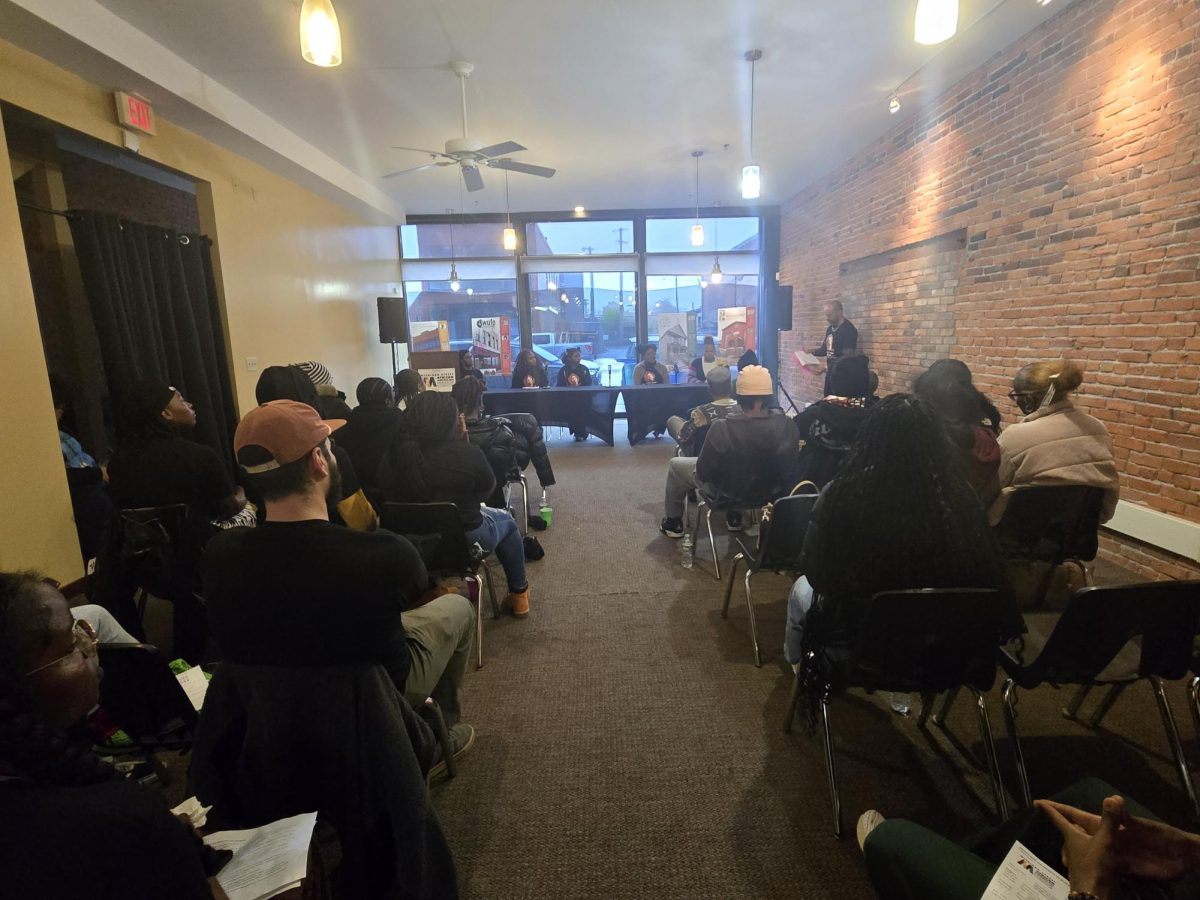President Conway-Turner addresses hunger on campus
Findings from the Centers for Disease Control and Prevention (CDC) correlate hunger to inhibited concentration and absenteeism in students.
March 15, 2018
SUNY Buffalo State President Katherine Conway-Turner recently wrote an article for The Buffalo News, to express her support of New York Governor Andrew Cuomo’s initiative to resolve food insecurity among students. Cuomo’s “No Student Goes Hungry” proposal from his 2018 State of the State address aims to provide students of all ages and backgrounds in New York state with healthy and sustainable meals.
Conway-Turner explained that her years in higher education have allowed her to witness the hardships many students face in relation to food insecurity.
“There’s always a segment of students that struggles with having either enough food, or the right kind of food,” she said, “And as you’re making your choices for education, sometimes what you’re eating, is the last thing you think about.”
College expenses often burden the budgets of many students, reducing the need for a balanced and consistent diet to little more than an afterthought. Tuition, housing, textbooks and transportation are all costs that can deplete a student of funds that could buy food.
By contrast, a 2016 study conducted by the National Student Campaign Against Hunger and Homelessness and three other campus-based organizations revealed over half of all respondents reported being unable to afford a textbook due to food and housing expenses.
In addition to financial hardships, hunger can also be detrimental to a student’s academic performance, as Conway-Turner explained in her piece for The Buffalo News. A press release for Cuomo’s proposal revealed findings from the Centers for Disease Control and Prevention (CDC) that correlate hunger to inhibited concentration and absenteeism in students. The “No Student Goes Hungry” campaign aims to place solutions where problems of food insecurity already exist, on-campus.
One point of Cuomo’s “Five-Point Plan” entails implementing a food pantry on all State University of New York ,SUNY, and City University of New York, CUNY, campuses. While this would be a new initiative for many campuses, Buffalo State has been at the forefront of addressing student hunger long before the issue gained traction on public forums and government agendas.
The college established Milligan’s Food Pantry nearly 20 years ago to provide food to students who did not have regular access to substantial meals. The pantry, which assists approximately 400 students annually, allows students to place anonymous orders online for pick-up in the Campbell Student Union. While the pantry thrives on monetary and food donations from students, faculty, and staff, a recent on-campus initiative served to raise resources and national recognition for Milligan’s.
On February 28, Chartwells, the parent company of Buffalo State’s Dining Services, partnered with Student Life to take part in the Cheerios-sponsored campaign “One Million Acts of Good.” Volunteers assembled 300 MATTERboxes that benefited Milligan’s Food Pantry and Friends of Night People, a charitable organization aimed at targeting poverty and homelessness in Buffalo communities.
Event organizers also hoped to catch the attention of the Ellen Show to spotlight Buffalo State’s efforts.
“MATTER has partnered with Cheerios, who has in turn partnered with 50 college campuses—us being one of them — to make this event possible,” said Chartwells’ Marketing Manager Samantha Wulff.
“We couldn’t be happier to bring this program to Buffalo State, and we really appreciate the impact we are able to make.”
Although colleges and lawmakers alike are raising awareness for food insecurity, the issue is not new. President Conway-Turner expressed how she faced similar experiences while attending college, coming from a family with modest means.
“As a student,” she said, “I remember eating pot pies forever because they were very inexpensive; they were actually much cheaper than they are now, so I know it’s an issue.”
She also acknowledged another component of food insecurity: not only do students struggle with maintaining regular meals, but the inability to find healthy food options is of great concern as well. Buffalo State has resources to help educate students on how to afford and prepare well-balanced meals.
“The student body is a special community inside the community,” Conway-Turner said, “and I know there’s a lot of information on healthy foods and how eating well is preventative for a lot of chronic ailments.”
Wulff also expressed the need for nutritional food options and discussed Chartwells’ motivation for participating in “One Million Acts of Good.”
“The goal is to help improve the health of our communities by packing healthy snack packs and distributing them to programs and organizations that help those dealing with food insecurity,” she said.
According to Conway-Turner, budget management is a valuable skill that can benefit students throughout their lives. When other costs are addressed, students may then have the means to afford food. Although pantries and other forms of food-related assistance are available to those in need, students should also be mindful of resources they can utilize to cover expenses like childcare and housing, for example.
While food insecurity is commonly perceived as a personal dilemma, it affects the entire community. President Conway-Turner suggests fostering discussions that not only address the issue, but also acknowledge the provisions and solutions available to ending hunger on-campus.
“I would ask each and every one of us to have our food pantry in mind, and as we’re having conversations too, please connect students to the resources that we have.”
eberhaij01@mail.buffalostate.edu





